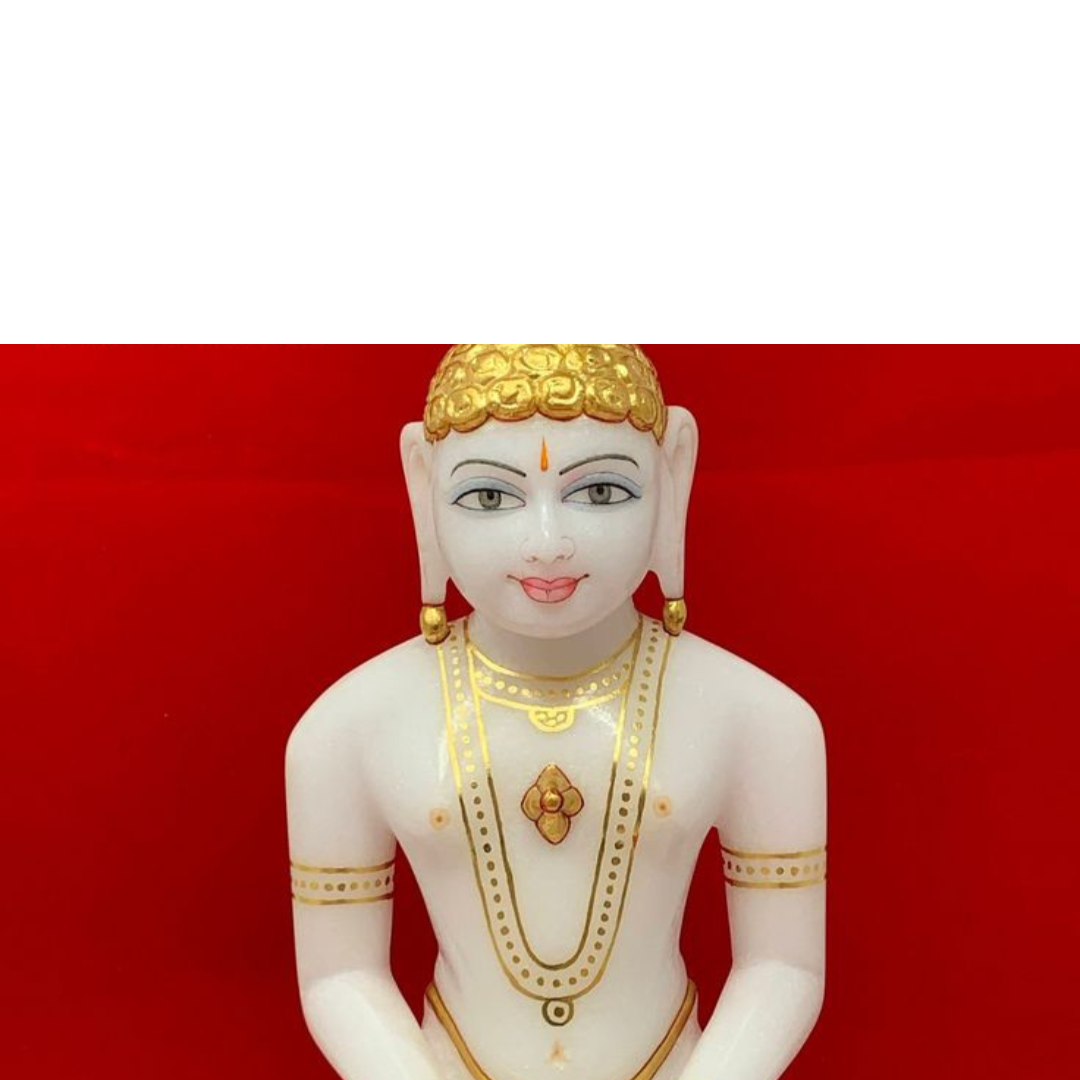So far we have seen how, in order to imbibe the spirit of the first three (uttam kshama, uttam mardav and uttam arjav), the next five (uttam shaucha, uttam satya, uttam samyama, uttam tapa, and uttam tyagya) virtues, which are the solutions of the first three, have to be followed.
From today we will see why the last two virtues – uttam akinchan (non-attachment) and uttam brahmacharya (chastity), are said to be the essence of the ten supreme virtues, and if these are followed then the remaining eight virtues are automatically followed.
Paryushan Parva—Ninth Day—Uttam akinchanya (detachment) or Supreme Detachment/Aparigraha/Vairagya
“Only a person who has given up the evil thought of attachment to worldly things can give up property”.
Giving up the belief that this thing is mine is the quality of detachment, so detachment means putting limits on ambitions, curbing desires.
Internal attachment: Feelings of love, hatred, affection, deceit, laughter, lamentation, fear, disgust and hatred towards living beings; and wrong perception are internal attachments.
External attachment: Greed for money and possessions is external attachment. Greed for worldly possessions is to desire more than one needs. Historically, the scriptures have listed these possessions as: Land, House, Silver, Gold, Wealth, Grain, Servants, Clothing and Utensils. But now we should add and give up many more things like digital/cell/social media (FB/Insta, etc), prejudices/knowledge, etc.
Being detached from these helps to control our desires and leads to the flow of positive karmas, so definitely, the absence of attachment and other feelings is Ahimsa, and the appearance of them is violence.
Attachment is what hinders us from practicing these qualities: Uttam Shaucha (perfect cleanliness), Uttam Satya (perfect truth), Uttam Sanyam (perfect restraint), Uttam Tapa (perfect penance), and Uttam Tyaag (perfect sacrifice), and because of this we lack Uttam Kshama (perfect forgiveness), Uttam Mardav (perfect gentleness), and Uttam Arjav (perfect humility).
अभी तक हमने देखा कि किस तरह से प्रथम तीन (उत्तम क्षमा, उत्तम मार्दव और उत्तम आर्जव) गुणों के भावों को आत्मसात् करने के लिए अगले पांच (उत्तम शौच, उत्तम सत्य, उत्तम संयम, उत्तम तप और उत्तम त्याग) गुणों, जो प्रथम तीन का समाधान है तो, उनका पालन करना होता है…
आज से हम देखेंगे कि अंतिम दो गुण- उत्तम आकिंचन (detachment)और उत्तम ब्रह्मचर्य (chastity) को क्यों दस श्रेष्ठ गुणों का सार कहा जाता है और अगर इनका पालन हो गया तो बाक़ी आँठ गुण स्वमेव ही पालन हो जाते है …
दिन ९:
पर्युषण पर्व-नौवां दिन-उत्तम आकिंचन्य (detachment) या सर्वोच्च अनासक्ति/ अपरिग्रह/ वैराग्य
“जो व्यक्ति सांसारिक वस्तुओं के प्रति आसक्ति के बुरे विचार को त्याग देता है, वही व्यक्ति संपत्ति का त्याग कर सकता है”।
यह विश्वास छोड़ देना कि यह वस्तु मेरी है, अनासक्ति का गुण है, इसलिए अनासक्ति का अर्थ है महत्वाकांक्षाओं पर सीमा लगाना, इच्छाओं पर अंकुश लगाना।
आंतरिक आसक्ति- जीवों के प्रति प्रेम, घृणा, स्नेह, छल, हंसी, विलाप, भय, घृणा और द्वेष की भावना; तथा गलत धारणा आंतरिक आसक्ति है।
बाहरी आसक्ति- धन और संपत्ति का लोभ बाहरी आसक्ति है। सांसारिक संपत्ति का लोभ व्यक्ति की आवश्यकता से अधिक की इच्छा करना है। ऐतिहासिक रूप से, शास्त्रों में इन संपत्तियों को सूचीबद्ध किया गया है: भूमि, घर, चांदी, सोना, धन, अनाज, नौकर, वस्त्र और बर्तन। लेकिन अब हमें डिजिटल/ Cell/ Social Media (FB/ Insta etc), पूर्वाग्रह/ज्ञान आदि जैसी कई और चीजें भी इसमें सम्मिलित कर छोड़नी चाहिए…
इनसे अनासक्त रहने से हमारी इच्छाओं पर नियंत्रण करने में मदद मिलती है और सकारात्मक कर्मों का प्रवाह होता है, इसलिए निश्चित रूप से, आसक्ति और अन्य भावनाओं का न दिखना अहिंसा है, और उनका दिखना ही हिंसा है।
अटैचमेंट ही हमे इन गुणों की प्रैक्टिस मे बाधा डालता है – उत्तम शौच, उत्तम सत्य, उत्तम संयम, उत्तम तप और उत्तम त्याग… और इसी कारण हममें उत्तम क्षमा, उत्तम मार्दव और उत्तम आर्जव का अभाव रहता है …

